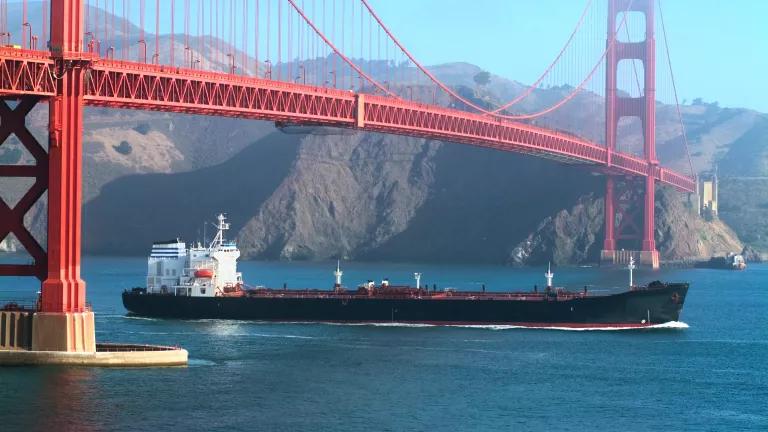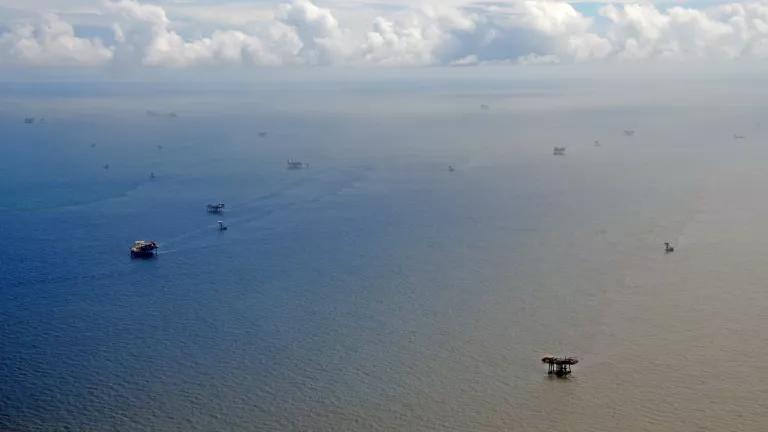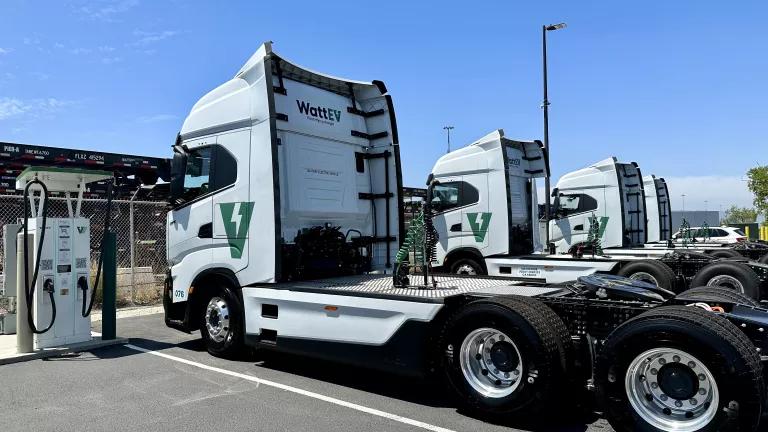Facing Future Threats: AB 936 Tackles Non-Floating Oil
California could see a huge influx of non-floating oils brought in on ocean tankers in the coming years. State legislators are trying to get the state prepared.

California Assembly Member Robert Rivas recently introduced Assembly Bill 936 (AB 936). The bill is a proactive step toward protecting California, and its critical resources, from the dangerous threats posed by non-floating oils. The risks associated with these oils—which include the diluted bitumen produced in Canada’s tar sands and the ultra-heavy oils produced in Venezuela’s Orinoco oil fields—are poised to increase for the state as its own heavy oil production declines [1] from the peaks it reached in the 1980s.
California’s refining sector is one of three in the United States that is optimally geared for refining heavy oils (the Midwest and Gulf Coast are the others). However, as California’s own heavy oil production has declined, refiners have turned to Canada, Mexico, and Venezuela [2] to supply the heavy oil feedstocks that the state’s refineries were built to process. For California, this has meant that more oil is coming into the state via ocean tanker as foreign imports rise, and there is a growing risk that this traffic could increase rapidly if projects like the Trans Mountain expansion pipeline is built in Canada.
Despite the risks of this looming influx, California’s waterborne oil spill response capabilities would be stretched beyond the breaking point in the event of a major marine spill. Non-floating oils represent a broad class of oils that are either heavier than water or, following rapid breakdown after a spill (known as “weathering”), begin to submerge into the water column and sink. Almost all waterborne oil spill response tactics have to do with containing oil floating on the water’s surface and then removing, dispersing, or burning as much of it as possible. Even these techniques haven’t proven particularly effective at removing the majority of oil spilled, but in the case of non-floating oils, they are only available to responders for a few hours before the oil stops floating.
Fortunately, the world hasn’t experienced that many major spills of non-floating oils into water. In the United States in 2010 , the largest such spill wreaked havoc on the Kalamazoo River and led to the costliest inland oil spill cleanup ever. An Enbridge pipeline carrying diluted bitumen from the tar sands ruptured, spilling more than one million gallons and closing a stretch of the river for four years. In the end, clean-up required river bottom dredging and costs ballooned out to at least $1.2 billion.
The Kalamazoo disaster provides a cautionary tale about non-floating oils that the provisions of AB 936 seek to confront as aggressively as possible. In short, the bill makes three critical changes to California law:
- Advance notice to key stakeholders. Currently, California regulators and first responders have limited or no information about the types of oil coming into the state via tanker, train, or truck. AB 936 requires 7-day advance notice of the presence of non-floating oils destined for the state.
- Advanced spill response ratings. Currently, oil spill response organizations (OSROs) receive ratings from 1-5 that reflect the types of oils they are certified as being capable of responding to. AB 936 creates a specific rating for non-floating oil response capability that also requires any operator carrying non-floating oils into the state to identify and contract with an OSRO with the non-floating oil certification.
- Increased financial responsibility. The Kalamazoo River disaster showed how costly and harmful a spill in a relatively shallow body of water could be. In the marine context, it is expected that costs could dwarf those seen in Michigan. Thus, AB 936 raises the financial responsibility cap for tankers carrying non-floating oils from $1 billion to $10 billion.
While policymakers, innovators, and the public work in overdrive to wean the world from fossil fuels and confront the pressing climate crisis, prudent measures like AB 936 play an important role in protecting precious natural resources from our risky oil addiction. California’s iconic coastlines and bays deserve the level of protection this bill could provide. We hope that someday soon bills like AB 936 won’t be needed at all. Until then, California must do all it can to prepare for, and guard against, a spill of non-floating oil in California waters.
[1] According to EIA data, more than 90% of California’s oil production is “heavy.”
[2] All three countries are major producers of heavy crude oils, though Canada is currently the dominant foreign supplier of heavy oil grades among countries importing oil to California.




